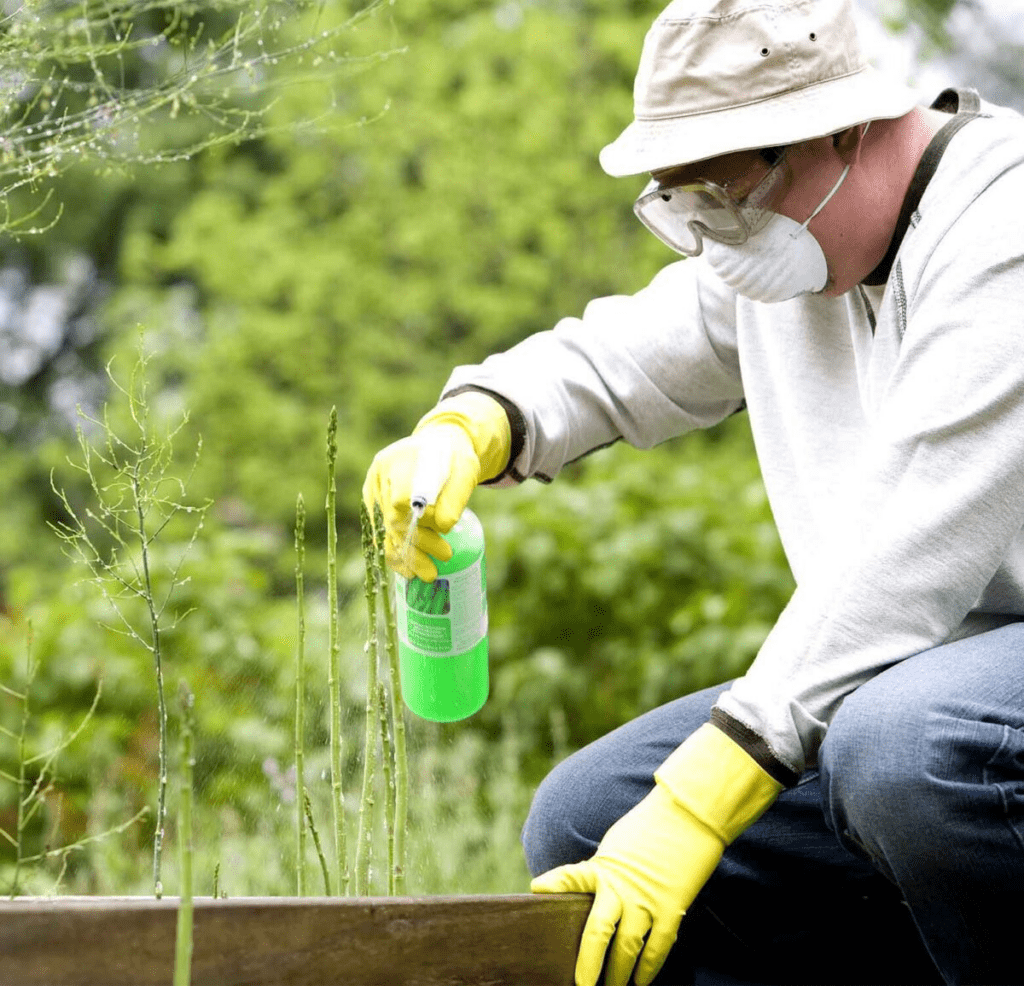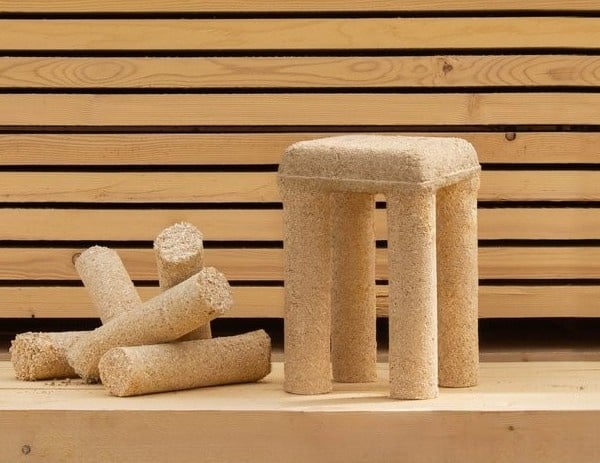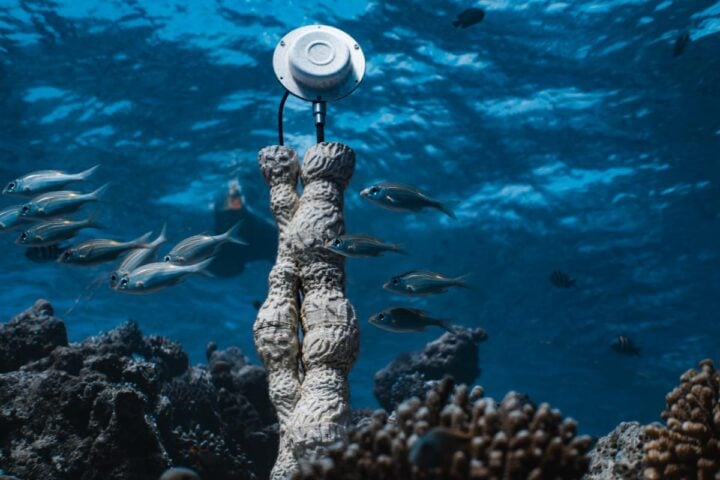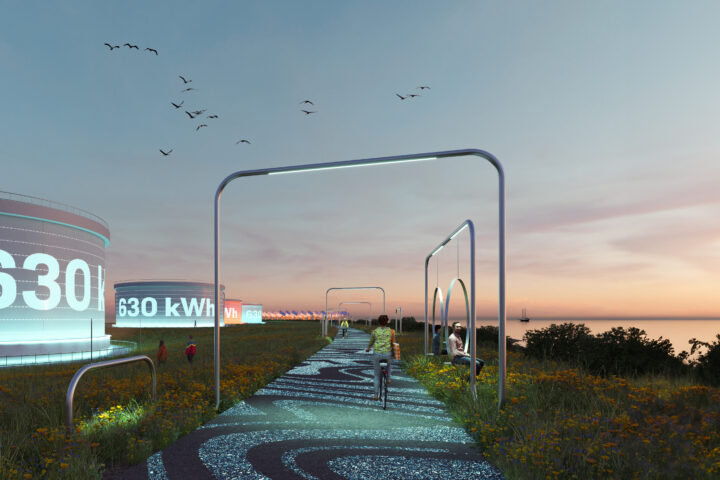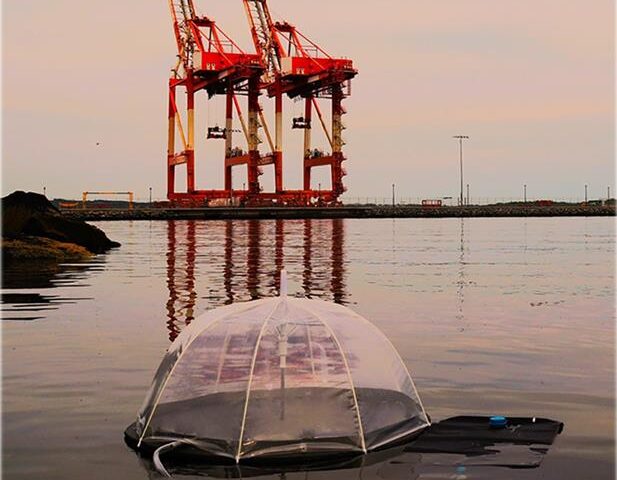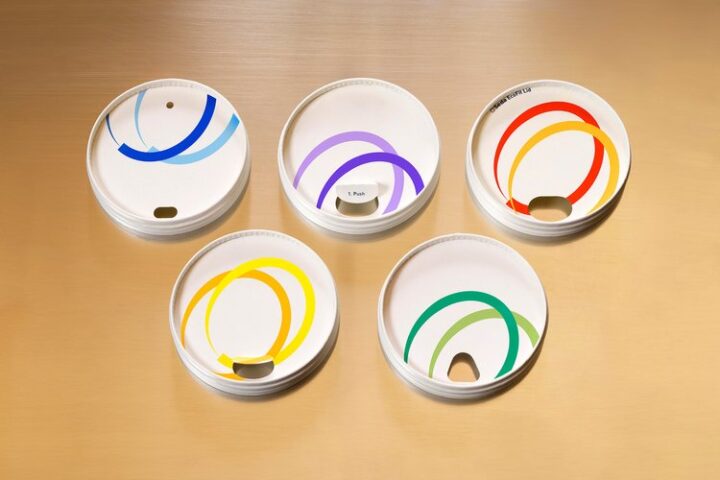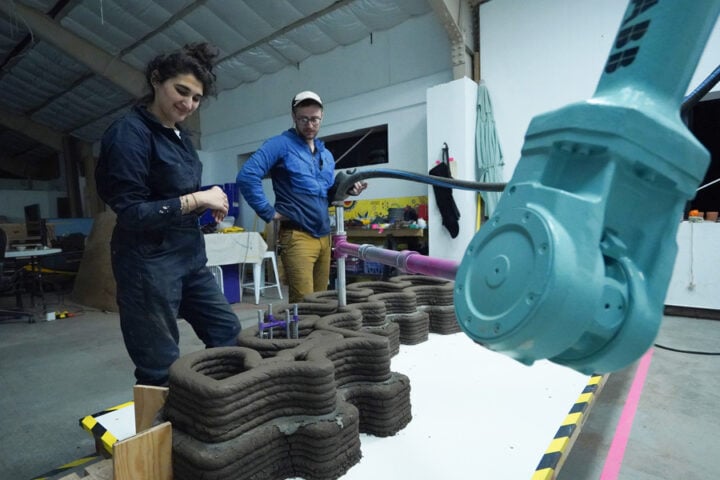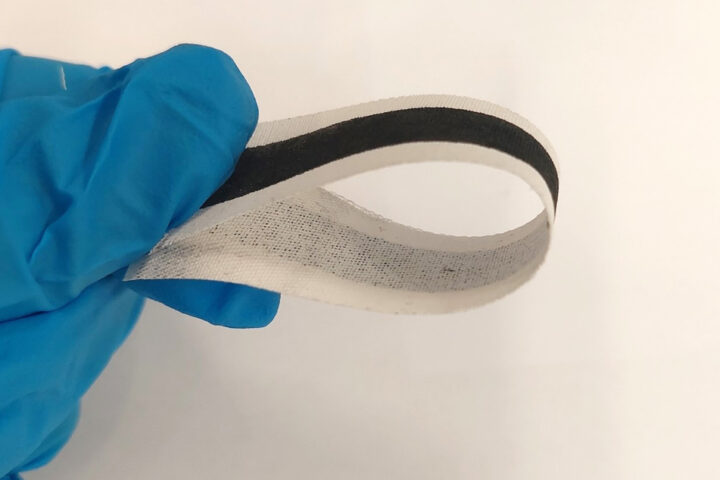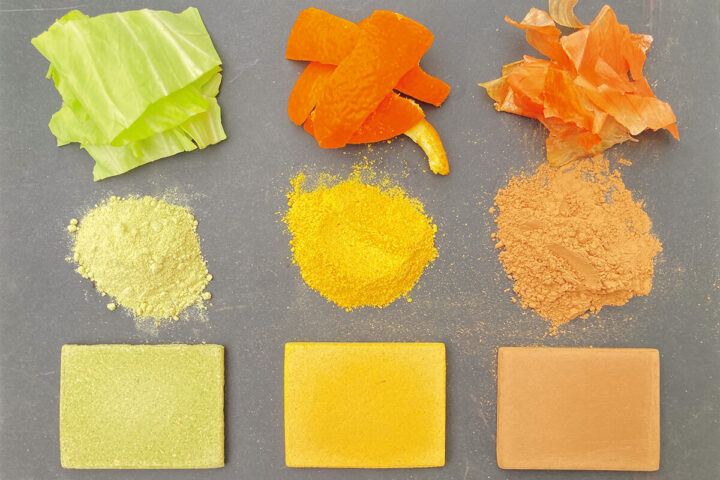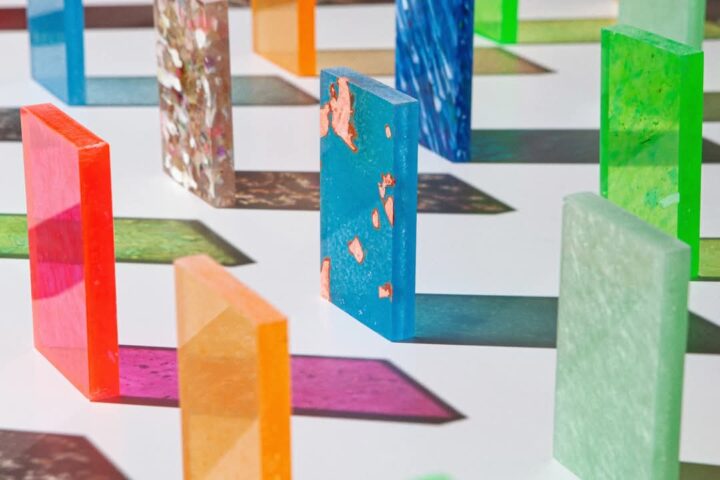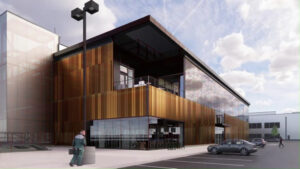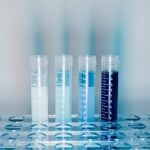Otrivin Air Lab is an urban laboratory that converts air pollution into products that help us breathe. Based in London, UK, this living showroom is open to the public at the Building Centre in London from 15th June to 17th September 2022. The said workshop is in collaboration with Otrivin.
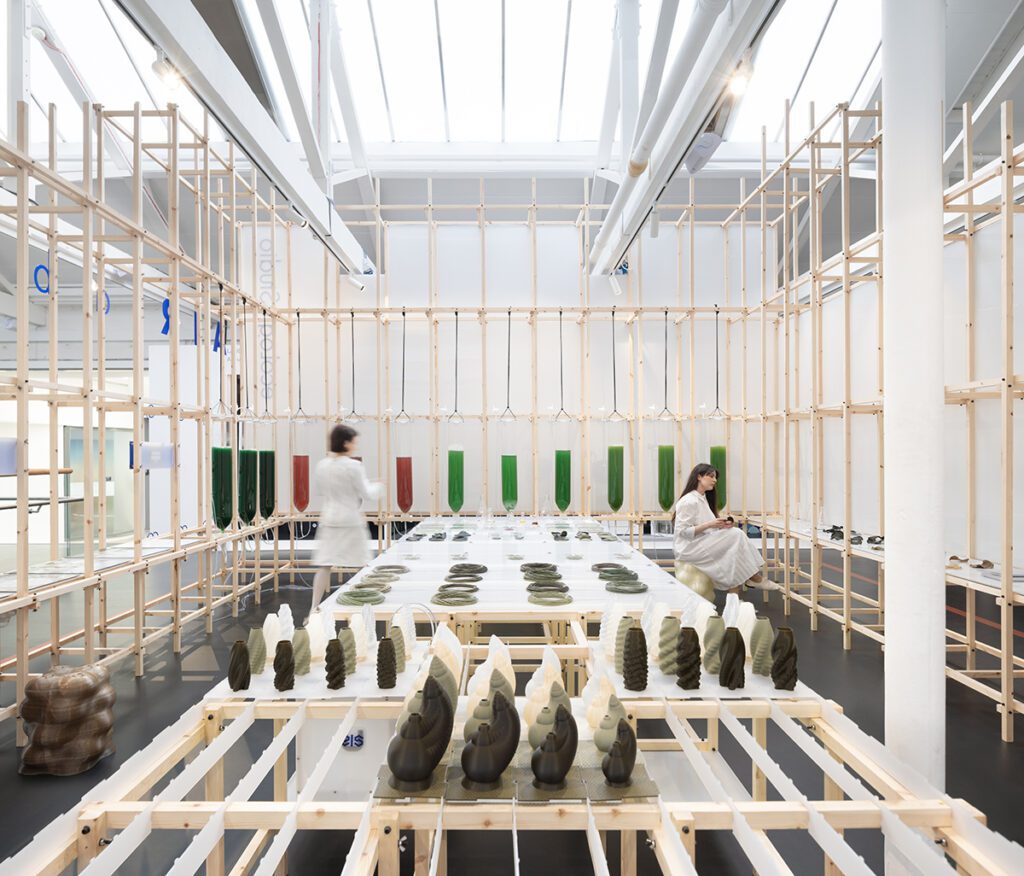
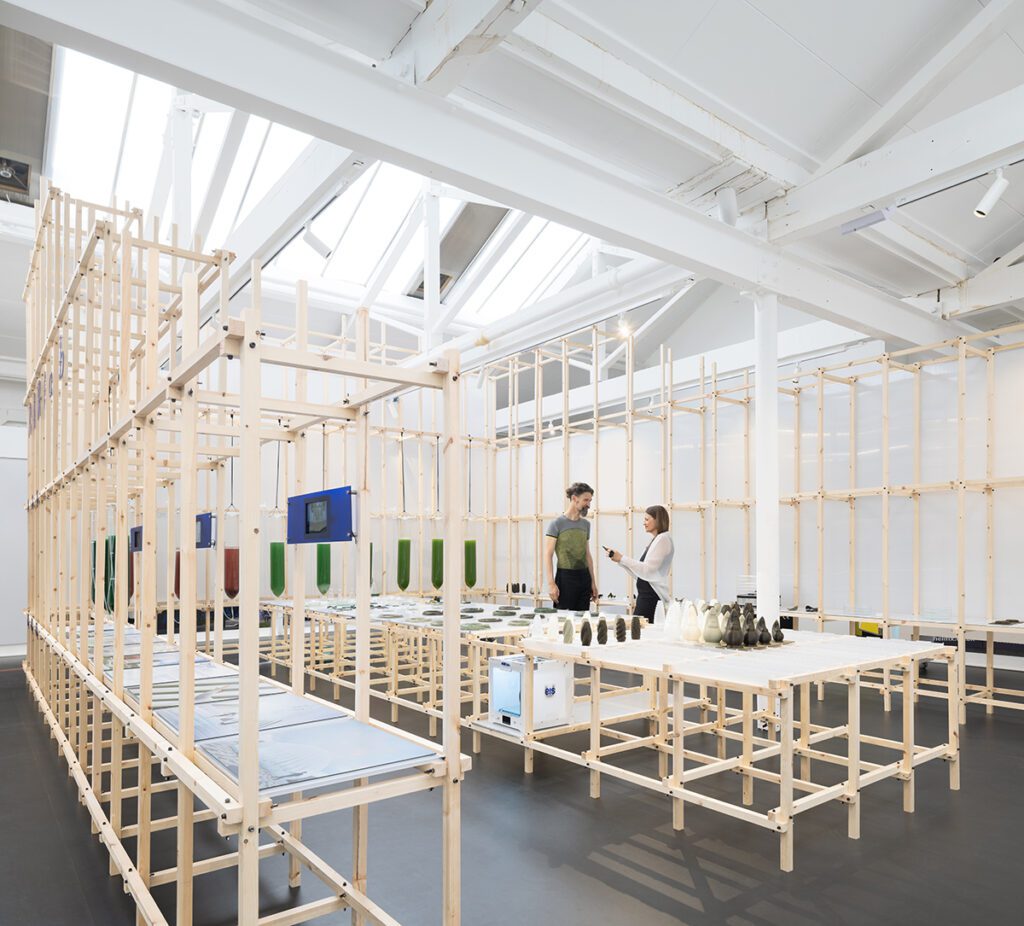
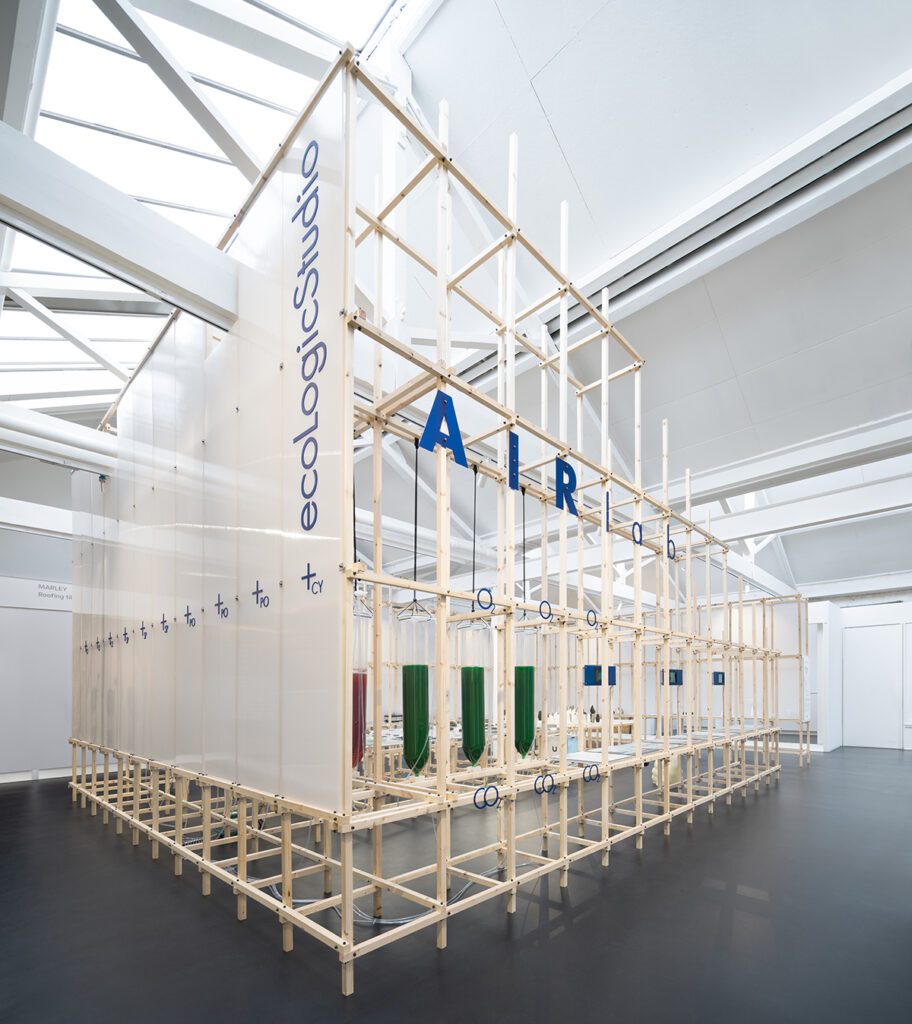
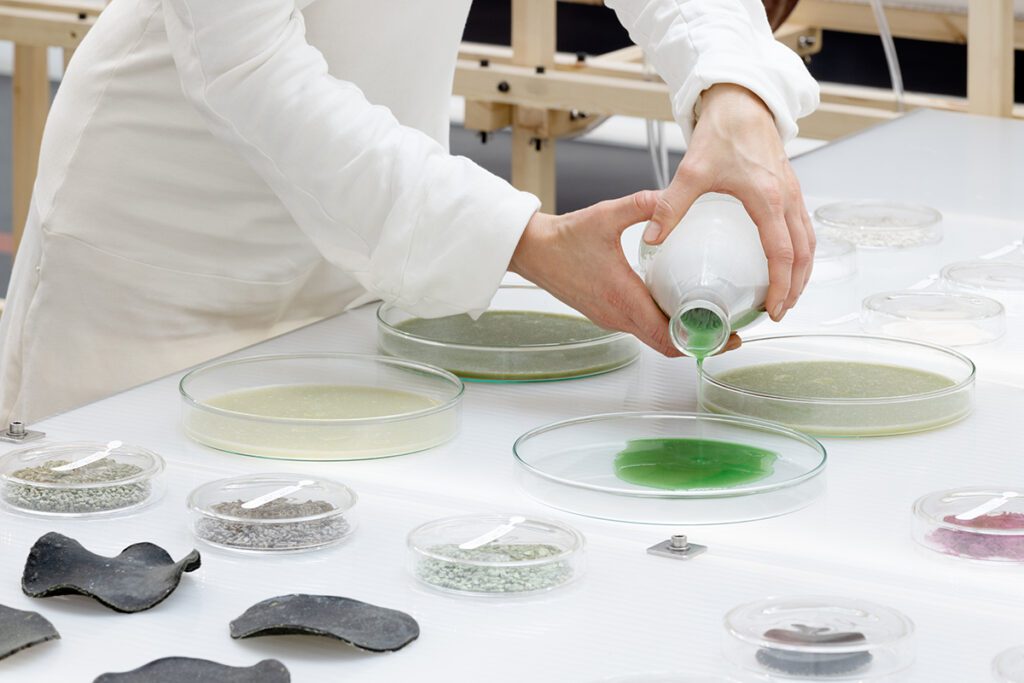
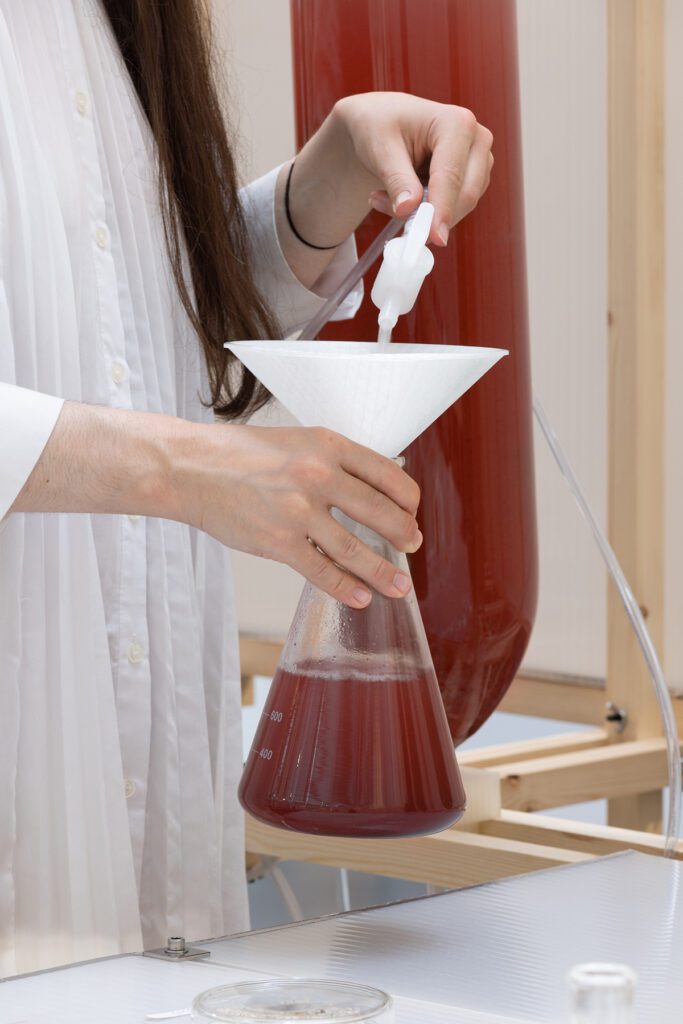
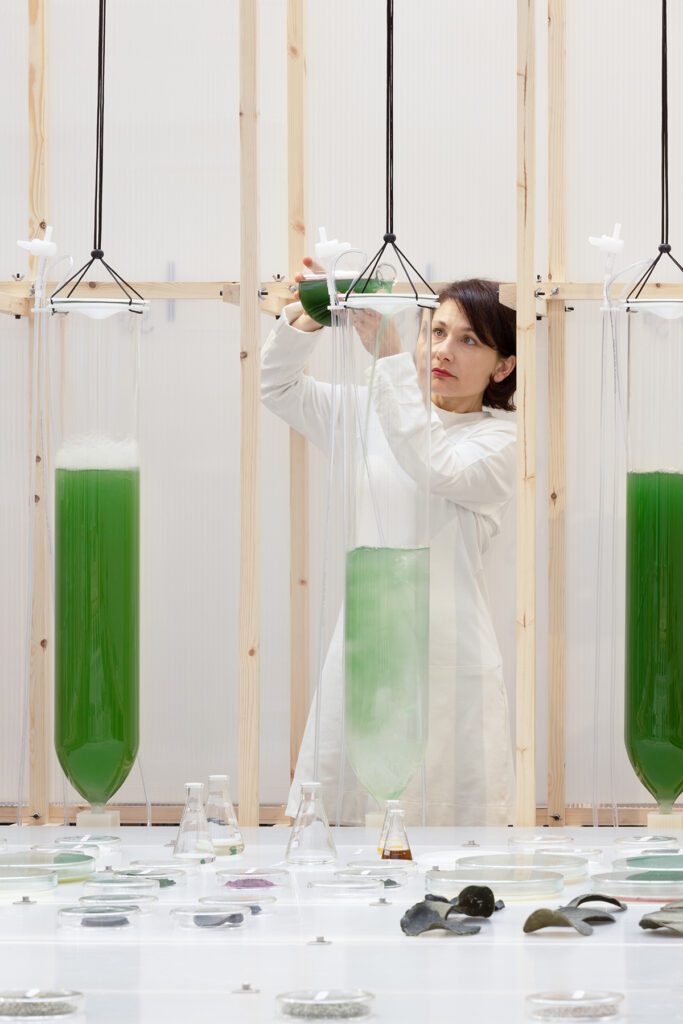
Otrivin Air Lab ideates to enable urban dwellers to design new nature-based culture economies. Moreover, the Air Lab urges and engages its visitors in the development of biodegradable polymers. These polymers are made with the by-product of the air purification process via living photosynthetic microalgae. These microalgae- that help convert sunlight, water and carbon dioxide into algal biomass- play a crucial role in making biomass which then helps create algae filaments.



Otrivin Air Lab uses the PhotoSynthetica technology- which has been a part of ecoLogicStudio since 2018- that uses solar energy to remove CO2 and pollutants from the atmosphere and produce a valuable food resource in the form of algae. Furthapture and store CO2 and release oxygen.*
The Air Lab’s interaction-based live exhibition experiments test the workflow of microalgae and its feasibility. The PhotoSynthetics technology empowered by ecoLogicStudio tries to re-metabolise carbon dioxide and polluted air into biomass.




This open laboratory develops carbon dioxide, purifies polluted urban air and 3d print plastic-free biodegradable products. Moreover, the crafted filaments from the carbon dioxide are employed in a live 3d printing process to produce carbon-neutral products. Air Lab produces carbon-neutral products that include a biodegradable form of plastic made entirely of renewable and degradable ingredients. These products contain biomass which is first transformed into biopolymer and then into 3d printing filament.




At the lab, visitors will be able to harvest microalgae that would eventually transform into ermore, for several years, PhotoSynthetica has continuously worked towards finding applications for microalgae. In 2019, PhotoSynthetica came with a new opportunity- the urban curtain photobioreactor. It is a form of bioplastic cladding membrane that uses pillows of algae to calgae-based bioplastic biofilament for 3d printing and finally into biodegradable products.
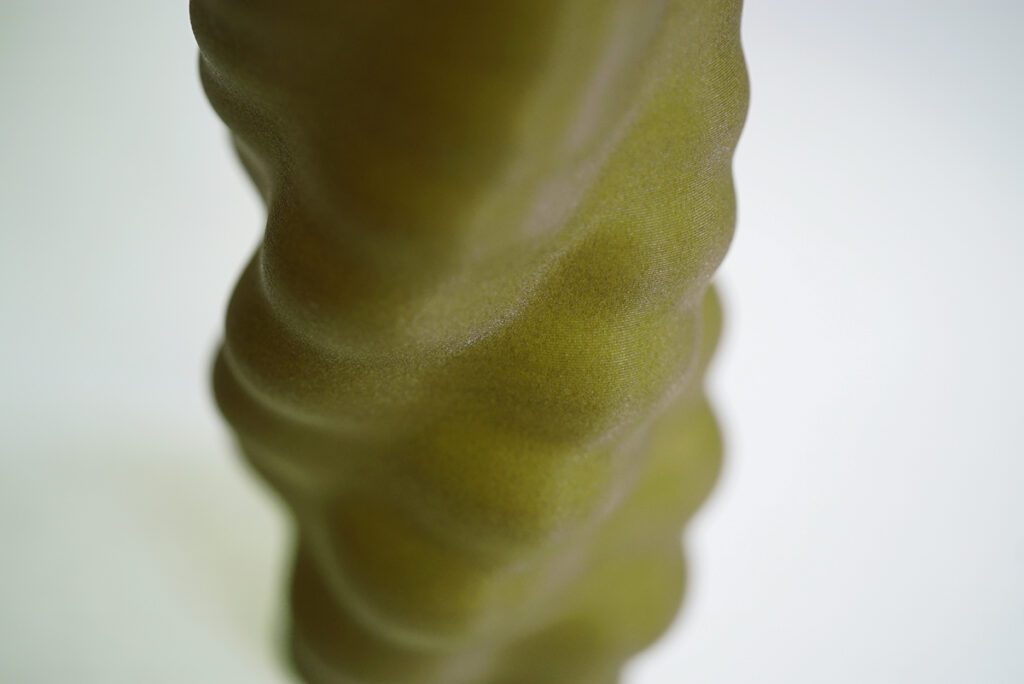
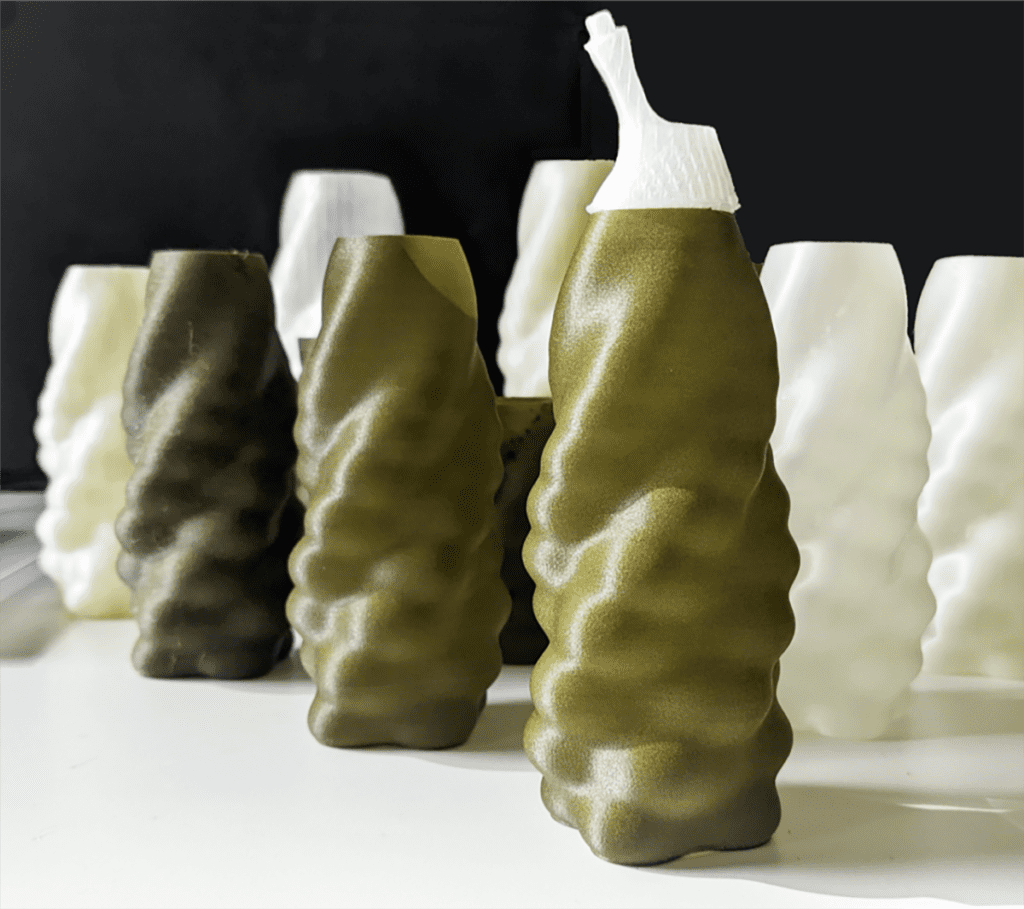
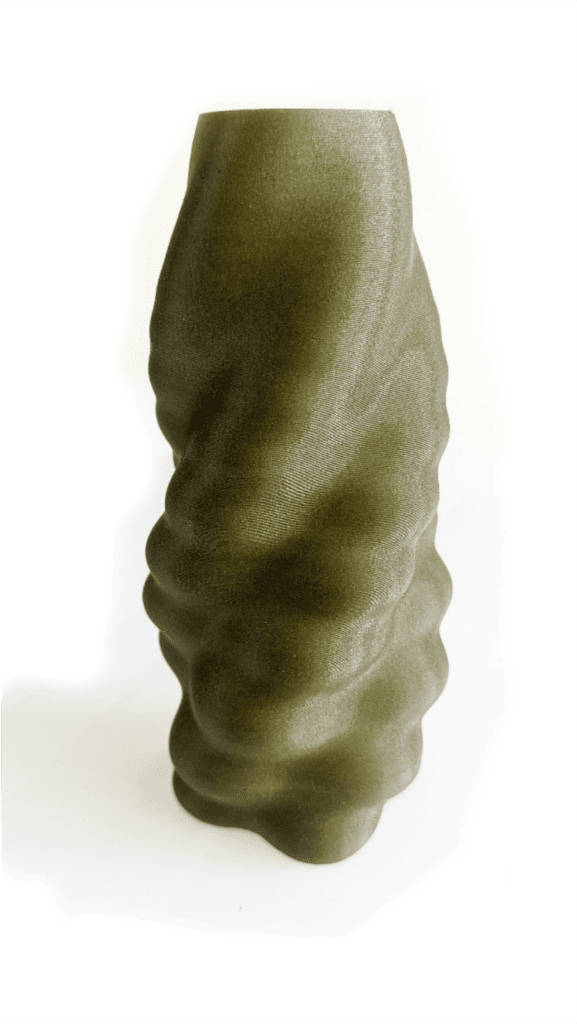
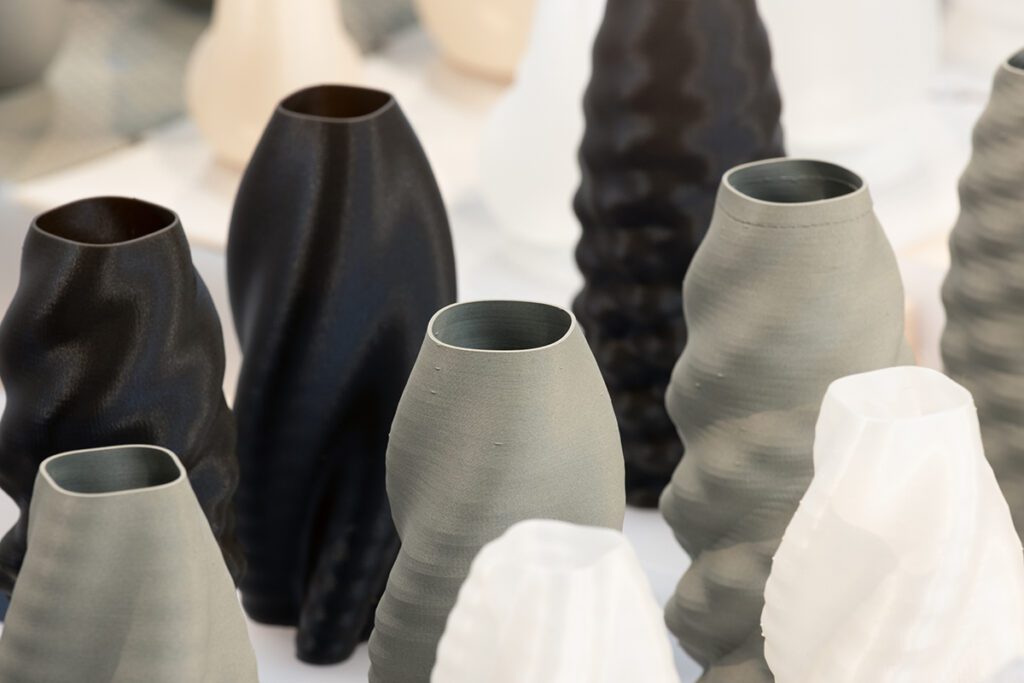
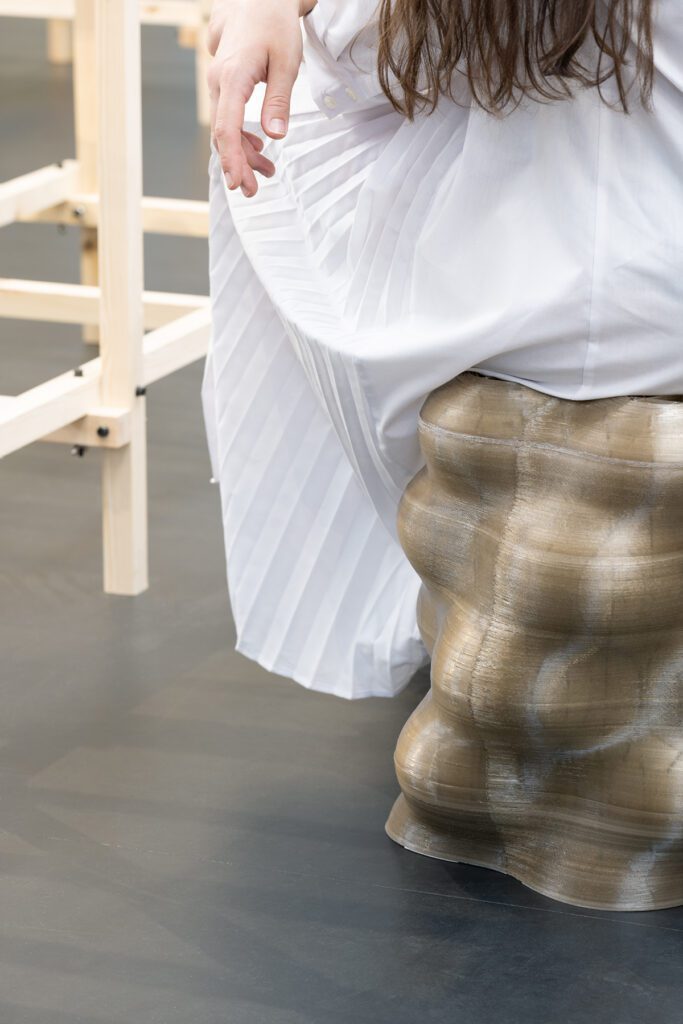
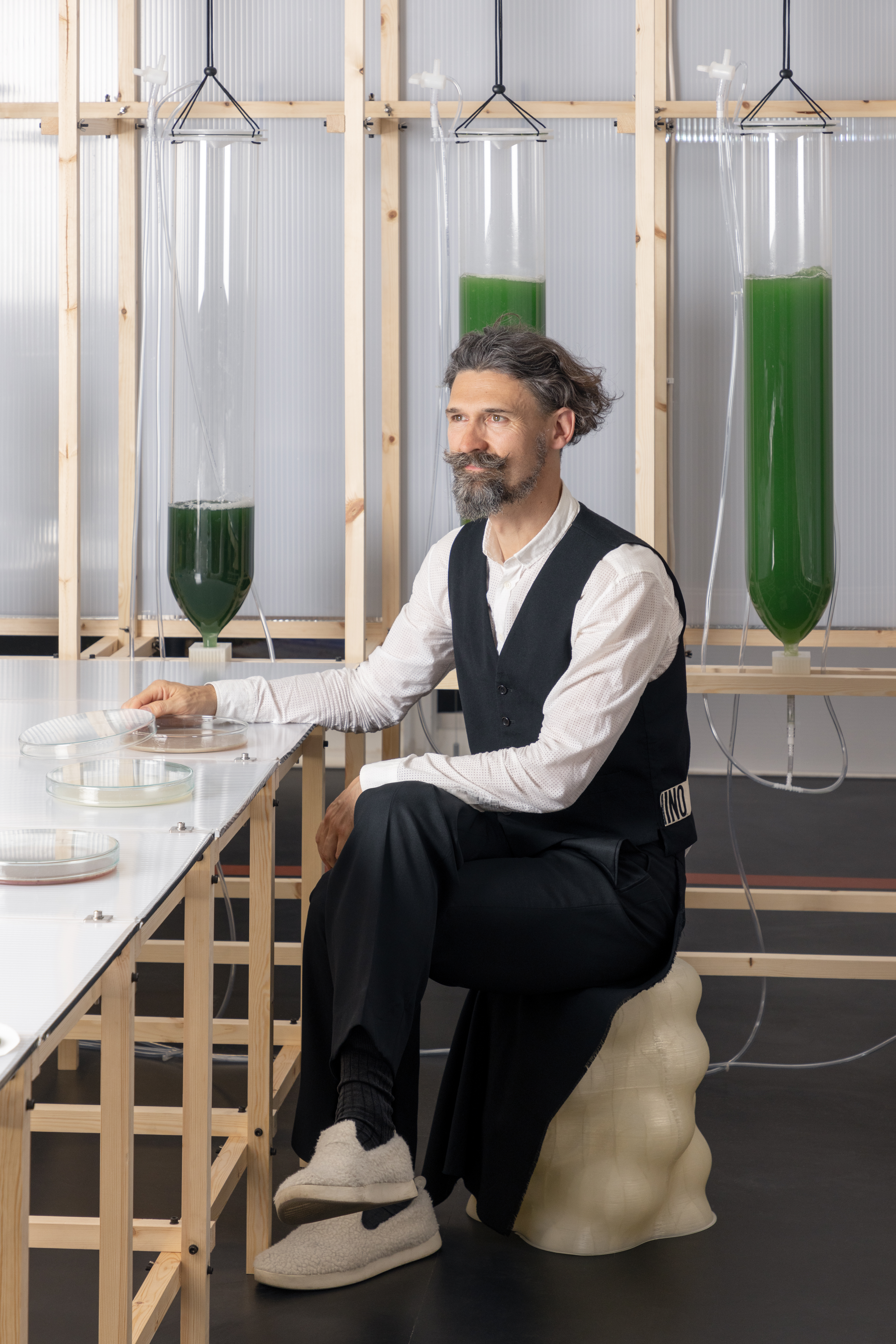
One of their products- a Fibonacci Netipot- modernizes the ancient tradition of nasal cleaning and respiratory wellness in the post-pandemic scenario. The NetiPot opens up several opportunities for a similar line of products.
Besides that, 15g of carbon dioxide is removed from the air after each NetiPot is produced. It brings about a conscious effort at being ecologically sound while adhering to the aesthetics of the product and a haptic simulation into everyday lifestyle.
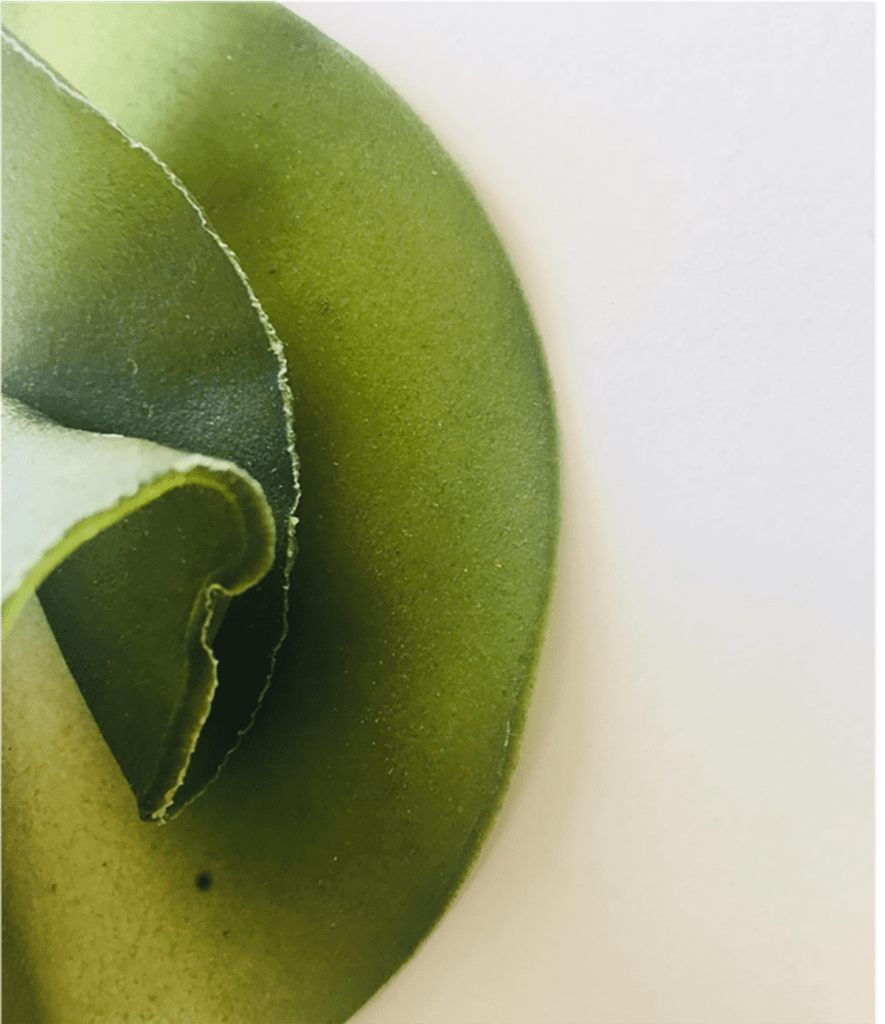
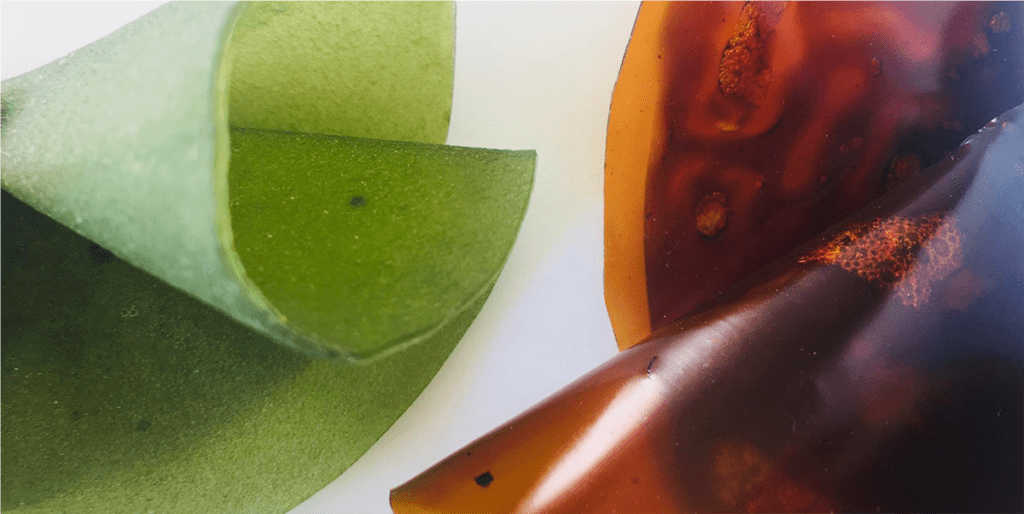

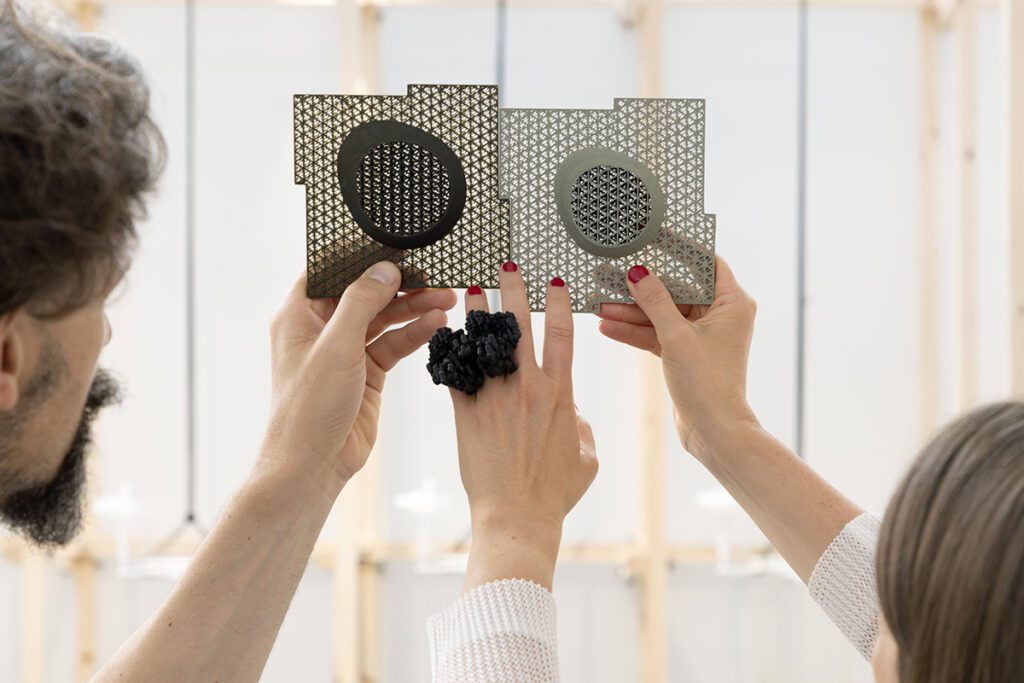
This experiment is the brainchild of Claudia Pasquero and Marco Poletto, who co-founded ecoLogicStudio in London in 2005. Both co-founders, Pasquero and Poletto, are architects and educators. Pasquero’s work and research often collide with two different fields- biology and computation and design. Poletto, on the other hand, is also the co-founder and director of the Photosynthetica consortium.
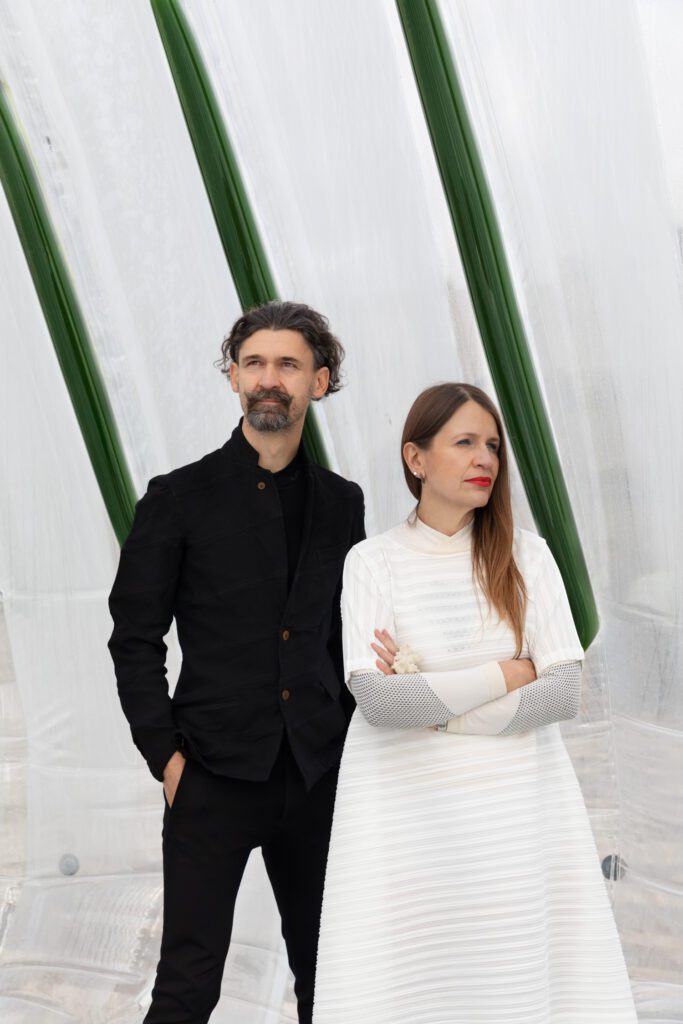
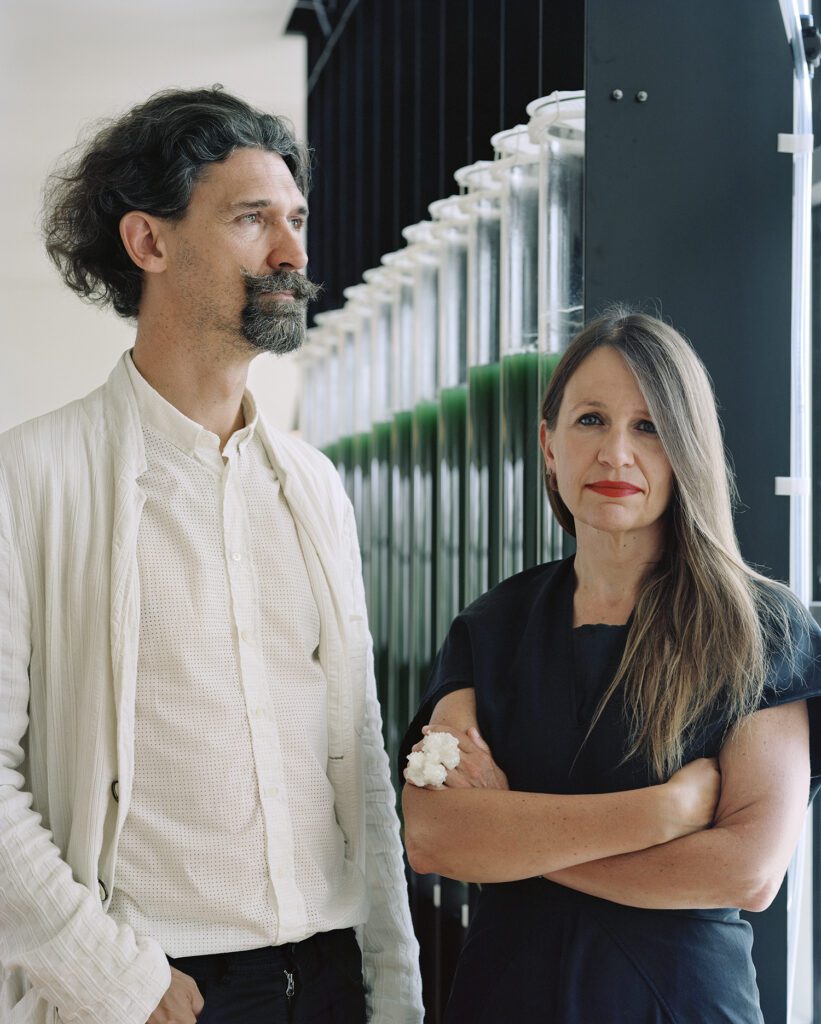
Furthermore, Pasquero is also a lecturer and director of the Urban Morphogenesis Lab at the Bartlett UCL, Professor of Landscape Architecture, founder of Synthetic Landscape Lab and Head of the Institute of IOUD (Institute of Urban Design) at Innsbruck University. Poletto, too, practices investigating the dissolving boundaries between the city and nature. He is a visiting lecturer at Innsbruck University, a visiting critic at Cornell University and Carnegie Mellon University, a Research Cluster leader at the Bartlett School of Architecture and a Research Fellow at Aarhus School of Architecture.
Claudia Pasquero and Marco Poletto’s interest in this creation, similar to a dimensional shift between the city and nature, has allowed them to envision a state-of-the-art public realm wherein filtration of air turns out to be an act of interaction with the microclimate we inhale.

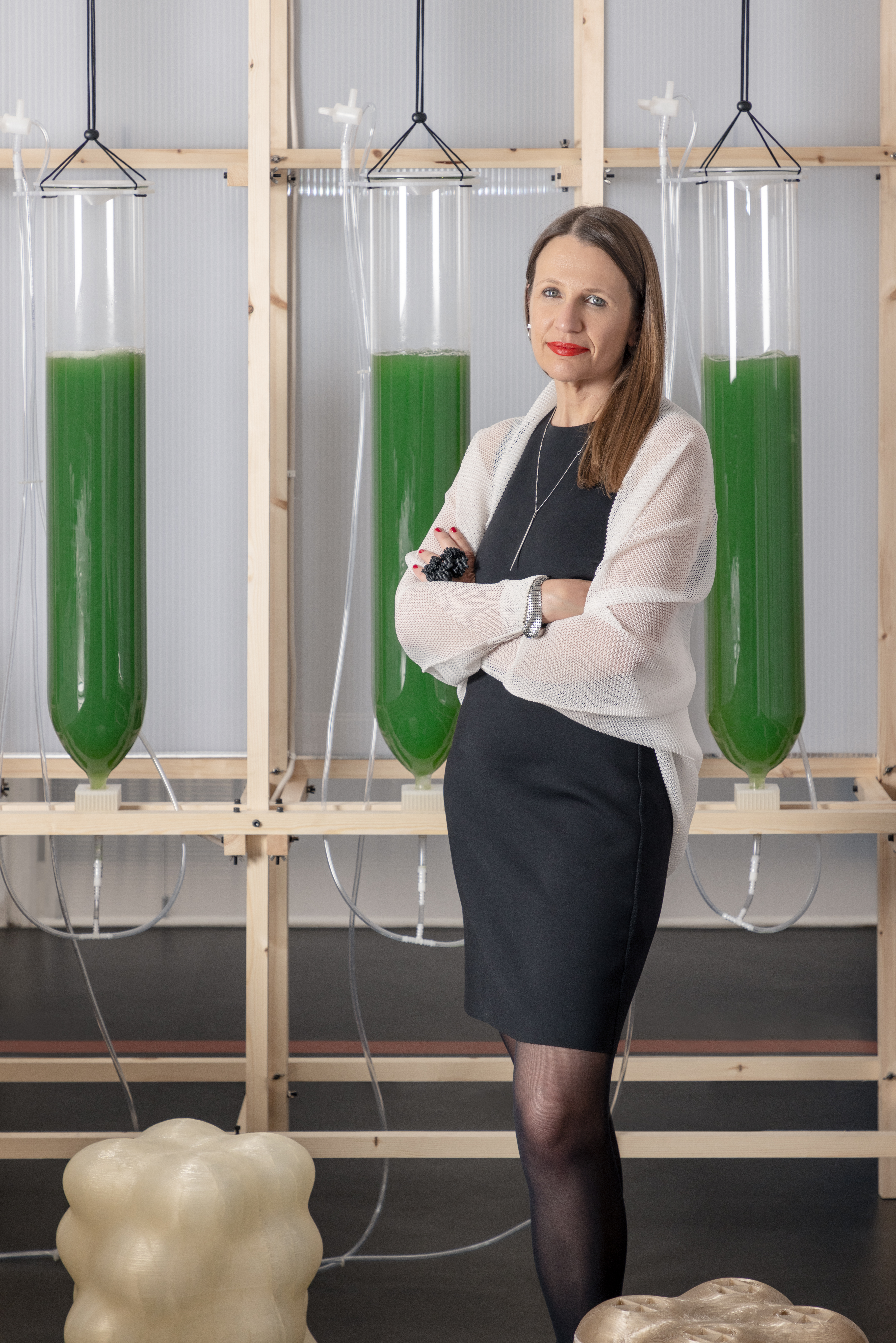
Pasquero and Poletto, along with Otrivin Air Lab, work towards moulding a future where people can co-exist by taking care of themselves and the environment. Lastly, Pasquero- while talking about this initiative– said:
“We cannot stop change, but we can devise an architectural instrument to establish a different understanding of change- a positive dynamic rather than a disrupted one.”


